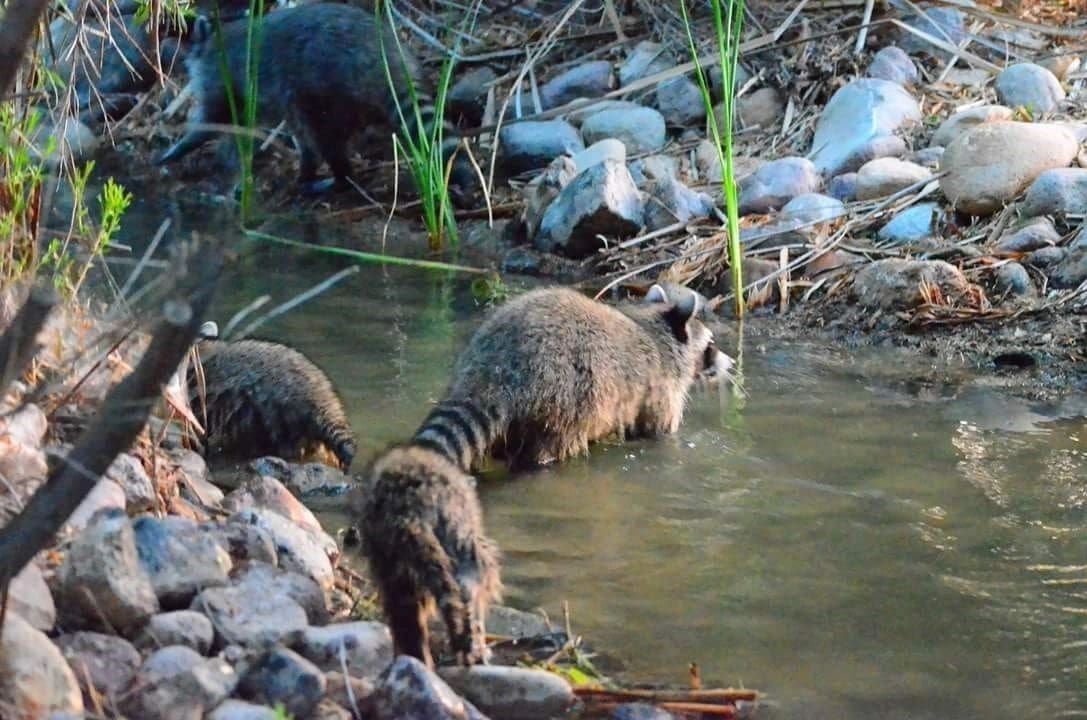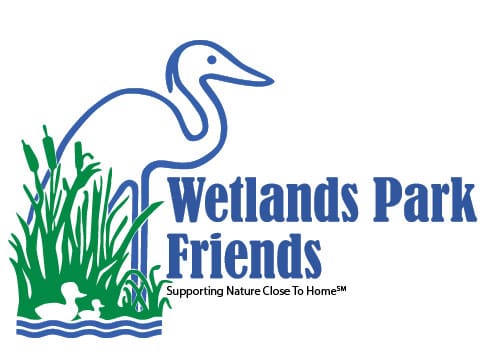The Raccoon

WHAT WETLANDS PARK ANIMAL LIKES TO WASH ITS FOOD BEFORE EATING?
Raccoons (Procyon lotor) are generally nocturnal, foraging for all kinds of plant and animal foods. Often, they dip or wash food items in water before eating. Their species name, “lotor,” means “a washer.” But why do they do this?
There are many theories, from raccoons just being super cleanly to lacking the salivary glands to help swallow their food. The longer and more interesting explanation is that raccoons spend a lot of time around water where they search for food by probing the nooks and crannies among the pebbles and debris on the stream, river or pond. When they find something that might be food, they roll it around in their front paws to determine exactly what it is. The front paws of a raccoon are extremely sensitive and they use that sensitivity to identify potential food items. If a raccoon encounters a likely item at a distance from water, they will roll it around in their paws right there, without involving any water. It also will often rub its paws together when holding nothing. However, researchers have determined that wetting the paws increases their sensitivity.
I particularly like the family portrait of raccoons at Clark County Wetlands Park (lower left). It reminds me of some “dumpster divers” we met a few years back!
Our maintenance team had placed a large, deep construction drop box in what is now the Nature Center parking lot. They had been filling it with plant debris and trash for over a week. One morning, we heard strange “scratching” sounds coming from the dumpster. When we peeked in, we saw that the dumpster had been emptied the previous day. Overnight, a mother raccoon and her two kits had jumped in, and couldn’t jump back out without the layer of trash to help them. The maintenance team quickly provided a ladder, and in less than fifteen minutes the family had climbed out and hustled away!
– By Chris Leavitt, President; photo by Philip Martini
Please enjoy this YouTube video:
